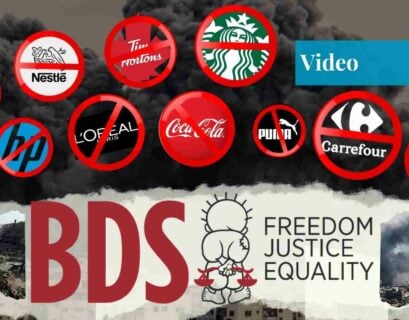Muhammad Tayyab is an engineering student at PIEAS, Islamabad. He has taken many online courses from well-reputed international universities around the world, including Harvard and Yale.
Businesses and Conflict Resolution
Conventional wisdom about the business of business ceases in the world where the market capitalization of some of the big corporations is greater than the combined market capitalization of many of the smaller economies. Of the 100 largest economies, 51 are corporations and 49 are states. This puts the businesses in an unusual position of shouldering some of the responsibilities, otherwise reserved for the states. Consequently, this also allows businesses to contribute to finding the solution to a conflict, like the Israel-Palestine issue.
To reciprocate the contributions made by businesses, states provide various monetary and fiscal incentives for them to operate optimally. Businesses can leverage important social causes in areas especially where it contributes to 30% of its GDP, where anarchy is widespread, where the political process is stagnant for so long that people no longer expect a light of rectification on the (political) horizon, where smooth operations of businesses are hampered by political disagreements, and where economic wizards see big stumbling blocks to the long-term growth of the economy.
The Israel-Palestine region, which is trapped in conflict, is one such zone where businesses here have an important role to play in the political settlement or solution of the dispute—similar to the one played by the African business community in ending the decades-old apartheid regime in South Africa, under the banner of Consultative Business Movement (CBM).
The Consultative Business Movement (CBM)
Consultative Business Movement (CBM) came into existence as a result of a high-level meeting between the business leaders and the representatives of the Mass Democratic Movement in Broederstroom. The primary purpose was to encourage a debate on South Africa’s economic and political future. The initial focus was on consultation and relationship-building measures between the government and the opposition parties.
CBM played a critical role in kick-starting an inclusive peace process after the refusal of liberation movements to participate in the peace process led by the National Party’s government. Legitimacy, as a mediator, to the CBM was granted when it was asked to provide secretarial and administrative support for the Convention for a Democratic South Africa (CODESA).
Further legitimacy was conferred on the CBM when it was asked to mediate a political stalemate created by the refusal of the Inkatha Freedom Party (IFP) to participate in the first-ever democratic elections of the country. After the transition, CBM played a crucial role in helping the government to build back bigger and better. The slogan, “Business stands for building a great nation,” was employed to counter the “political stance” accusation.
Breaking the Impasse (BTI) Initiative
Conceived at the 2012 World Economic Forum (WEF) in Davos, the “Breaking the Impasse” initiative (BTI) was launched the following year at the WEF Dead Sea Summit. The guiding principle was to respect the dignity of humans on both sides of the border. Initially, the movement had the support of some 300 big and small businesses from both the Israeli and Palestinian sides.
However, the support for Breaking the Impasse gradually dwindled in the following year with the unrolling of the Israel-Palestine conflict and lackadaisical behavior on the part of the Israeli business community. Nevertheless, the business community has so far capitalized on the available options and come a great deal in realizing its ultimate goal.
Options Available for Businesses
The business community and those involved in the Breaking the Impasse initiative have three important options for kick-starting the stalled dispute settlement process. The first option is to revive/influence the former political process since the businesses operating in the area have a sizable share in the GDP and have access to the higher echelons of power. Therefore, they are rightly positioned to influence the political process and maybe come up with a viable solution to the Israel-Palestine conflict.
The second option is to act Independently of the political process. Some of the richest men living in the area can initiate the schemes that would make the political settlement of the dispute inevitable. The last option available to the businesses in this zone is a combination of political and apolitical processes.
As is the conventional wisdom that you can’t wring politics out of the politics, so a mixed political and apolitical approach can be employed to influence the prudent settlement of the dispute that is wreaking havoc on the inhabitants of the area for the past 7 decades and has reduced their lives to a decrepit wreck.
Contribution of Businesses to the Peace Process
Several business initiatives in the recent past have employed a combination of the options to revive the long-stagnated process. For instance, former SodaStream CEO, now a subsidiary of Pepsi, Daniel Birnbaum, brought together Israeli and Palestinian workers under one roof and created an environment of mutual harmony and support for each other. The experiment not only confirmed the fact that Israelis and Palestinians can live side by side but also the fact that the bottom-up approach may bring a political settlement to the dispute.
The provision of water to Rawabi city, the first planned city in the West Bank and the most significant construction project undertaken in the history of Palestine, was made possible through a great deal of support and pressure from the ultra-orthodox Israeli Jews—The Coordinator of Government Activities in the Territories (COGAT)—on the political establishment of Area C, much to the irony of Palestinians. The project once again substantiates the importance of businesses in bringing the dispute to a logical end and creating harmony and a mutual sense of living in the people of the contested geography.
This part of the Middle East is water-scarce and businesses fully capitalized on this opportunity by proposing an environment-friendly “EcoPeace” project. The project was designed to bring Jordan, Israel, and Gaza—a part of Palestine—together purely out of environmental concern. The low-cost electricity of Jordan would be exported to Gaza, across Israel, to solve its electricity shortfall problems.
The project will also enable Israel and Gaza to treat their sewage before releasing it to the Mediterranean, thereby solving Israel’s problem of the constant closure of desalinated plants. The water would then be transported back to Jordan via Israel to solve its water scarcity problem—a win-win situation. The business community, through the grandiose “EcoPeace” project, demonstrates its ability to exert pressure on the administrations of the Israel-Palestine conflict zone to move the political process forward to find a solution and bring people closer to one another.
The Palestine internship program (PIP) demonstrates the business community’s role in finding an amicable solution to the Israel-Palestine conflict. The scholarship funds encourage Palestinian graduate students to spend a year or so in an Israeli tech company and then return to start their own startups.
Many tech startups in Rawabi city are by the graduates/beneficiaries of PIP. The founding of a venture capital fund for injecting capital into the wholly Palestinian startups, by a joint venture of Palestinian and Israeli businessmen, once again demonstrates the role of the business community in the resolution of the wider conflict by changing realities on the ground.
Finally, human rights are of paramount importance. Businesses once again can use their influence to stop barbaric human rights violations in the region by exerting pressure on the governments to respect fundamental human rights.
Why the BTI Initiative is Considered a Failure
Businesses have so far taken considerable strides in solving the long-standing dispute. However, the Breaking the Impasse initiative is considered a spectacular defeat for some obvious reasons. The lack of effective resolve on the part of the Israel-Palestine business community, top-down and external idea—conceived at WEF—dubious declaration of political neutrality, refusal to engage one of the main parties to the conflict (Hamas), the lack of a K-Group, refusal to shoulder some of the burdens itself, lackluster approach in building grass-roots support for the cause, and the refusal to confront conflicting narrative are some of the reasons for its spectacular defeat.
Paradoxically, the Breaking the Impasse movement, which was loosely built on the idea of the Consultative Business Movement (CBM) – which had been so consequential in bringing peace to South Africa – falls short of its expectations for the above-mentioned reasons. Nevertheless, that’s not the end of everything. There is a clear case for the business community. The water scarcity problem may wreak havoc on the inhabitants of both sides of the wall, with the expected life disruptions in the conflicted region, if left unaddressed.
Certainly, the Israel Palestine conflict hasn’t reached a point where, like the South African business community, the Israel-Palestinian business community could take a role in finding a solution that is potentially there but needs assistance along the way. Ironically, the Breaking the Impasse initiative, which is dormant for the past few years, needs to be revived.
If you want to submit your articles and/or research papers, please check the Submissions page.
The views and opinions expressed in this article/paper are the author’s own and do not necessarily reflect the editorial position of Paradigm Shift.



















